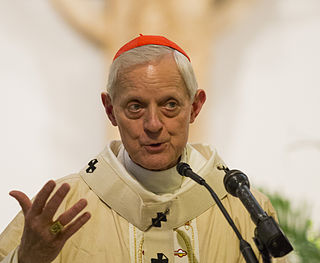A Quote by Kenneth E. Boulding
The very act of thinking about power in our lives and experiences creates a process of revelation and self-analysis that may even make us look at ourselves in a new light... thinking about power and its complex manifestations may not simply lead to a better understanding of the abstract complexities of society, but may have an effect on one?s own image and identity. Perhaps a warning label should be placed on the cover.
Related Quotes
Many people do not know that they can strengthen or diminish the life around them. The way we live day to day simply may not reflect back to us our power to influence life or the web of relationships that connects us. Life responds to us anyway. We all have the power to affect others. We may affect those we know and those we do not even know at all. . . . Without our knowing, we may influence the lives of others in very simple ways.
We all have the power, intuition, and ability to think and act for ourselves until we give that power away. We give our power away because we're bullied into thinking we aren't good enough and someone else must know better than us; therefore, we should give over our instincts and act according to instruction.
However small we are, we should always fight for what we believe to be right. And I don’t mean fight with the power of our fists or the power of our swords…I mean the power of our brains and our thoughts and our dreams. And as small and quiet and unimportant as our fighting may look, perhaps we might all work together…and break out of the prisons of our own making. Perhaps we might be able to keep this fierce and beautiful world of ours as free for all of us as it seemed to be on that blue afternoon of my childhood.
I was worried before I saw the play 'The Seven Storey Mountain', thinking I don't really want to see a play about Thomas Merton. He probably wouldn't have either, ideally. Then it isn't. It's more about us and it's about our relationship to what he may or may not have thought about. It's its own thing completely.
Going after a dream has a price. It may mean abandoning our habits, it may make us go through hardships, or it may lead us to disappointment, et cetera. But however costly it may be, it is never as high as the price paid by people who didn't live. Because one day they will look back and hear their own heart say: 'I wasted my life.'
Pride is a terrible and dangerous thing. It can take so many forms; it can even assume the appearance of humility. Pride can lead not only to self-exaltation, but also to self-abasement. The key to battling pride is not found in struggling against thinking too highly of ourselves or in striving to think of ourselves as lowly. The key is found in simply not thinking about ourselves at all, but setting our minds on Christ and the needs of others.
The problems with willpower are many, but they may hardly be noticed by the person focused narrowly on success. First, there is little economy of means; in systems thinking terms, we act without leverage. We attain our goals, but the effort is enormous and we may find ourselves exhausted and wondering if it was worth it when we have succeeded. Ironically, people hooked on willpower may actually look for obstacles to overcome, dragons to slay, and enemies to vanquish--to remind themselves and others of their own prowess.
For what accords better and more aptly with faith than to acknowledge ourselves divested of all virtue that we may be clothed by God, devoid of all goodness that we may be filled by him, the slaves of sin that he may give us freedom, blind that he may enlighten, lame that he may cure, and feeble that he may sustain us; to strip ourselves of all ground of glorying that he alone may shine forth glorious, and we be glorified in him?
The object of our being placed upon this earth is that we may work out an exaltation, that we may prepare ourselves to go back and dwell with our Heavenly Father; and our Father, knowing the faults and failings of men has given us certain commandments to obey, and if we will examine those requirements and the things that devolve upon us we will find that they are all for our individual benefit and advancement. The school of life in which we are placed and the lessons that are given to us by our Father will make of us exactly what He desires, so that we may be prepared to dwell with Him.
A rational process is a moral process. You may make an error at any step of it, with nothing to protect you but your own severity, or you may try to cheat, to fake the evidence and evade the effort of the quest - but if devotion to the truth is the hallmark of morality, then there is no greater, nobler, more heroic form of devotion than the act of a man who assumes the responsibility of thinking.





































